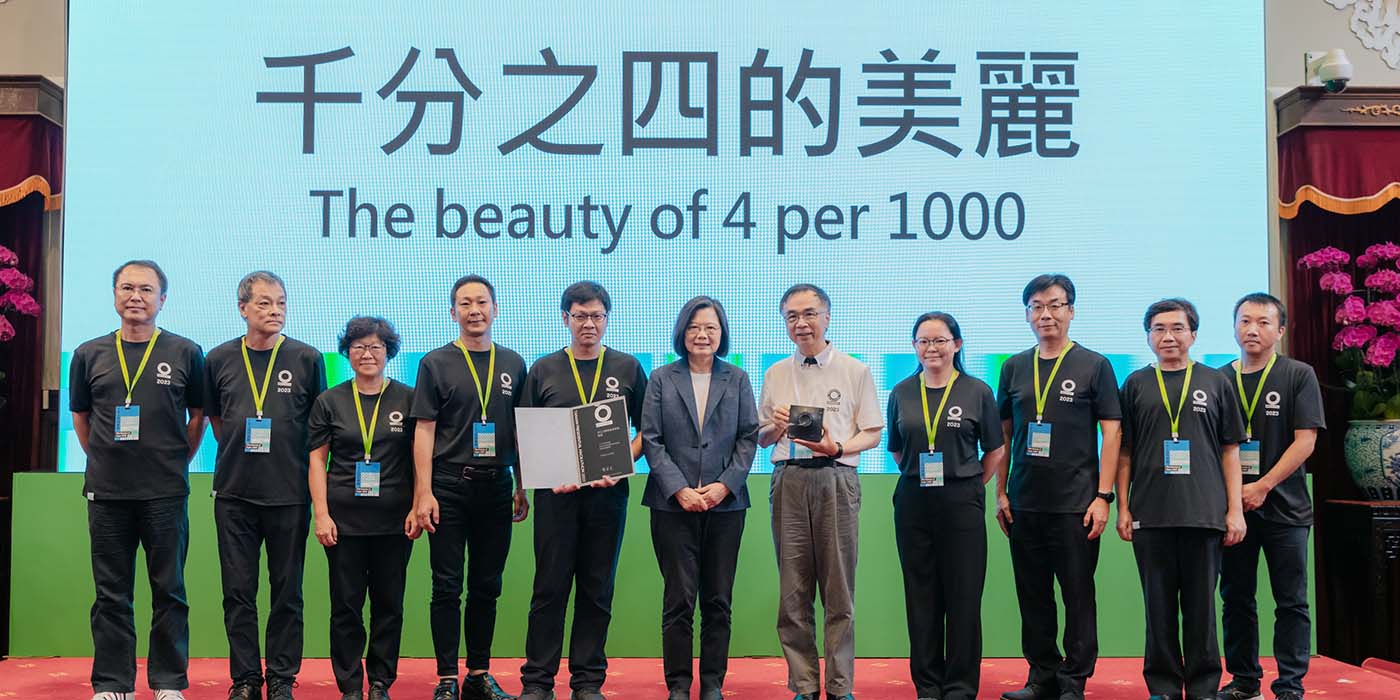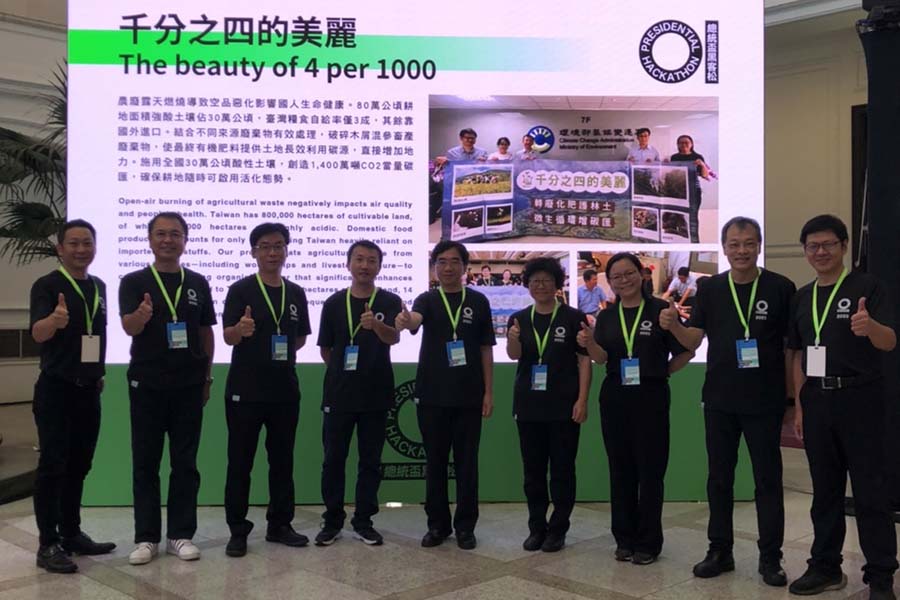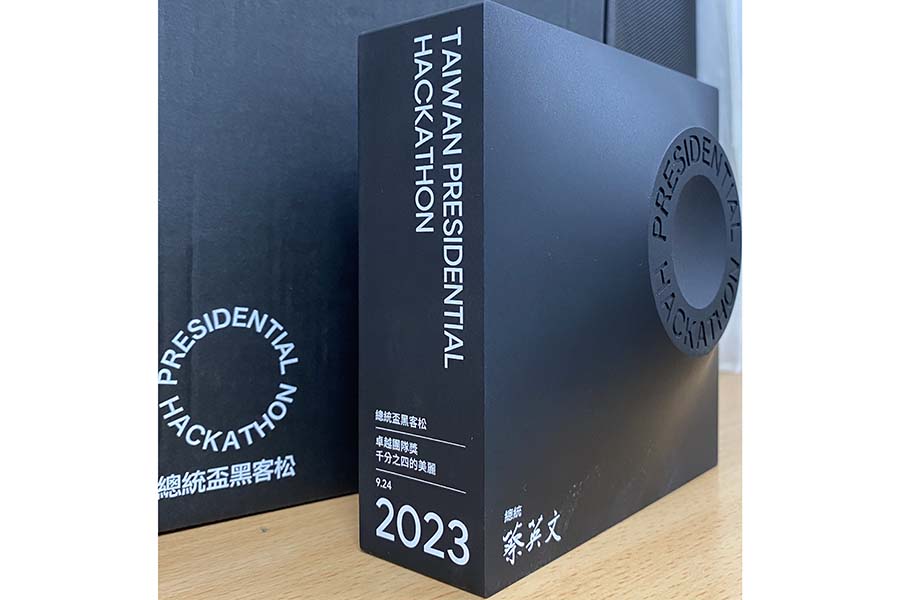Associate Professor Tang Chi of the National Pingtung University of Science and Technology (NPUST) Department of Soil and Water Conservation and his team were named among the top teams at this year’s (2023) Taiwan Presidential Hackathon. Their proposal, entitled the “Beauty of 4 per 1000”, was sponsored by a number of businesses and agencies including Taiwan Semiconductor Manufacturing Co., Ltd., Pingtung County Government Environmental Protection Bureau, Ministry of Environment Climate Change Administration, Taiwan Agricultural Research Institute, Agricultural Experimental Institute of the Ministry of Agriculture, Eco-affinity Inc., and the Green Consumer Foundation.
The annual “Taiwan Presidential Hackathon”, is organized by the Presidential Office, Executive Yuan, Ministry of Digital Affairs and Ministry of Transportation. This year, after the six-month review point, five finalists were selected for awards. The awards ceremony was held at the Presidential Palace on September 24, 2023, with President Tsai Ing-wen personally presenting the awards to the top teams.
In her speech, President Tsai said: The theme of this year’s Presidential Hackathon is “Zero Carbon Transition: Happily Moving Forward”. The world has already reached a consensus on a 2050 net-zero transition, and it is an important goal for Taiwan as well. Among this year’s outstanding teams, three groups were related to the net-zero transformation, including as the “Green Project Alliance”, the “Building Carbon Reduction Health Assessment Team”, and the “Beauty of 4 per 1000”. I believe that after the implementation of these proposals, the government will be better situated to promote net-zero carbon emission policies and move Taiwan further towards becoming a sustainable and low-carbon homeland.
The Paris Climate Summit in France (2015, COP21) proposed that as long as the organic carbon content of topsoil (0~40 cm depth) is increased by 4‰ every year, it will help offset 80% of the annual CO2 concentration in the atmosphere. If 40 tons of organic compost are applied to each hectare of farmland in Taiwan, crop yields can increase by 5 to 15%, and 14 million tons’ worth of CO2 carbon sinks can be created on 300,000 hectares of acidic soil.
Therefore, Associate Professor Tang Chi of the NPUST Department of Soil and Water Conservation presented the “Beauty of 4 per 1000” proposal. He expressed that the idea “is to establish close cooperation between public services and private sector experts from different fields. They can learn from each other and work towards achieving the “citizens’ wishes and hackers solutions”. For the most part, domestic agricultural waste is disposed of through open burning, which results in more greenhouse gases emission, such as carbon dioxide. If agricultural waste is not properly dealt with, it will cause problems for the country’s soil health. The “Beauty of 4 per 1000” team brought together experts from various fields to effectively process waste using different methods, such as mixing crushed wood chips with livestock waste to create organic fertilizer. The long-term application of the fertilizer will allow the carbon to return the land, increase agricultural land fertility, and accomplish the goal of bringing topsoil carbon content to four parts per thousand.
The “Taiwan Presidential Hackathon” was established in 2018 to encourage public and private sectors to work together to create a platform so that data owners, data scientists, and experts in various fields can use open government data and innovative scientific and technological methods to solve social problems, optimize government efficiency, and give the public a better sense of what’s happening.



